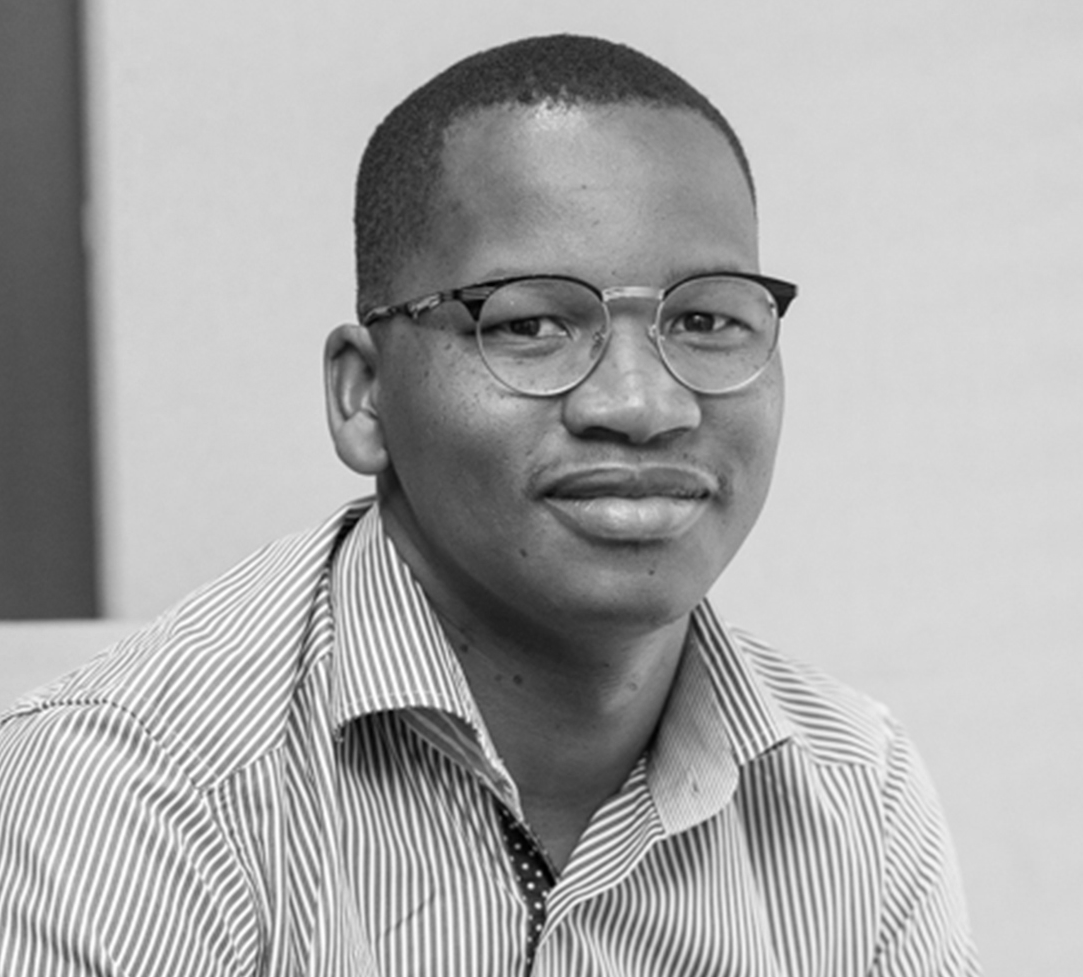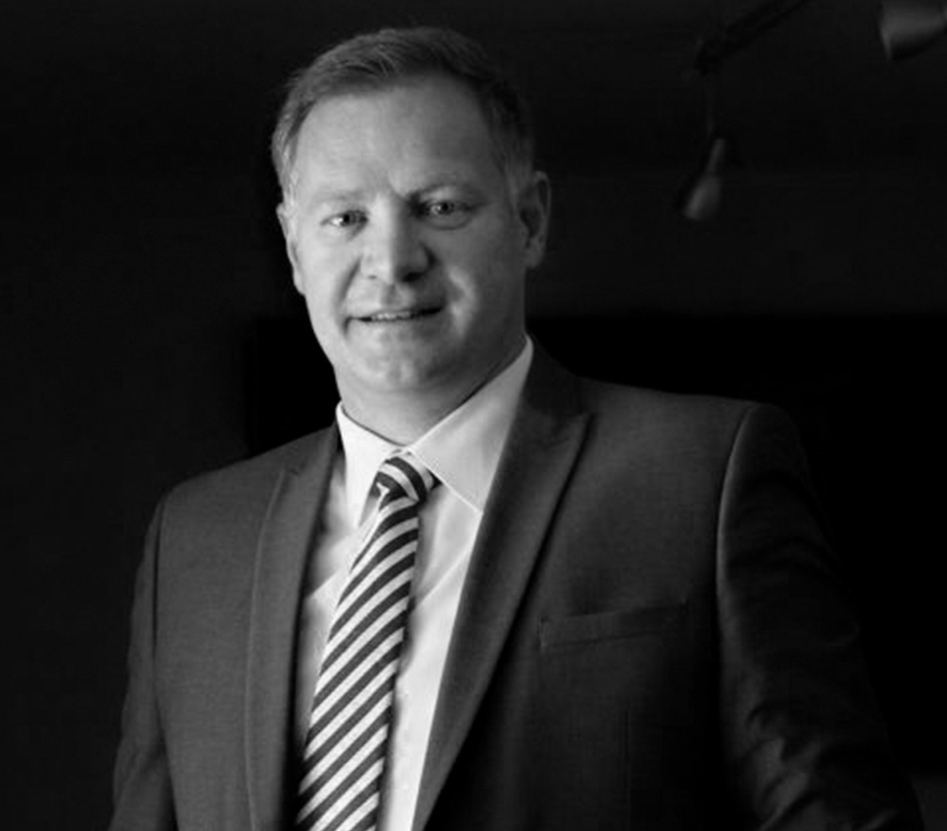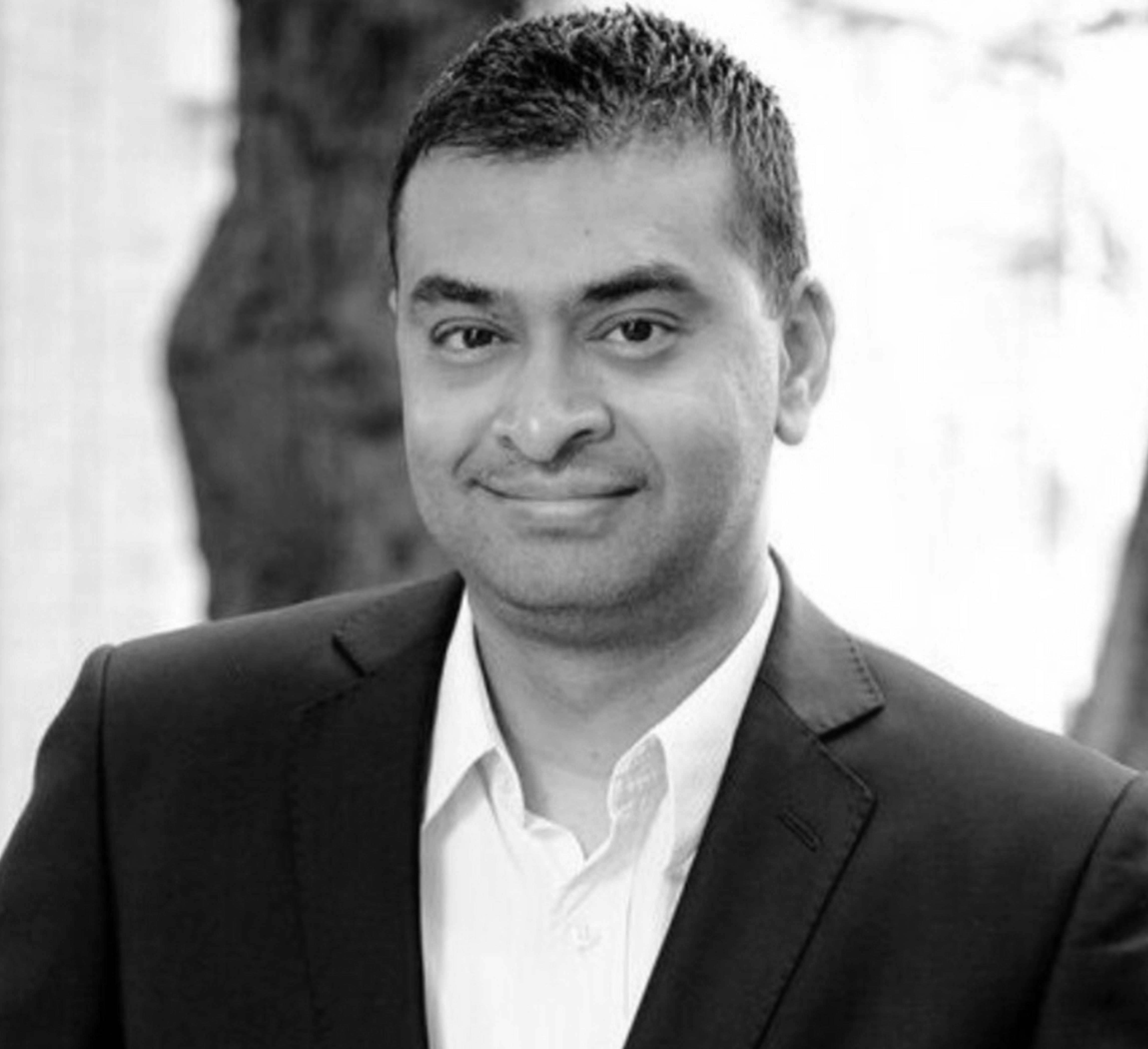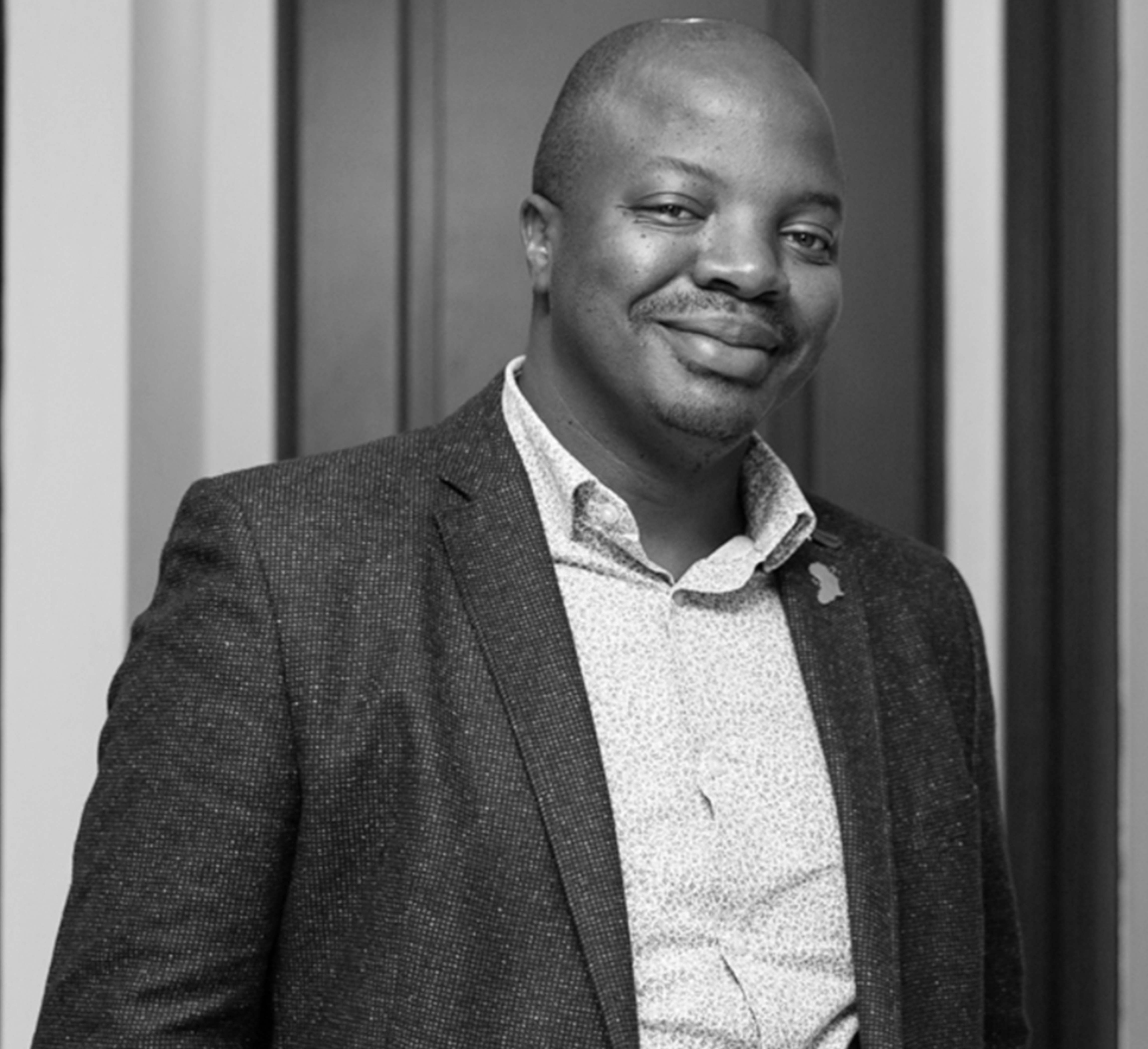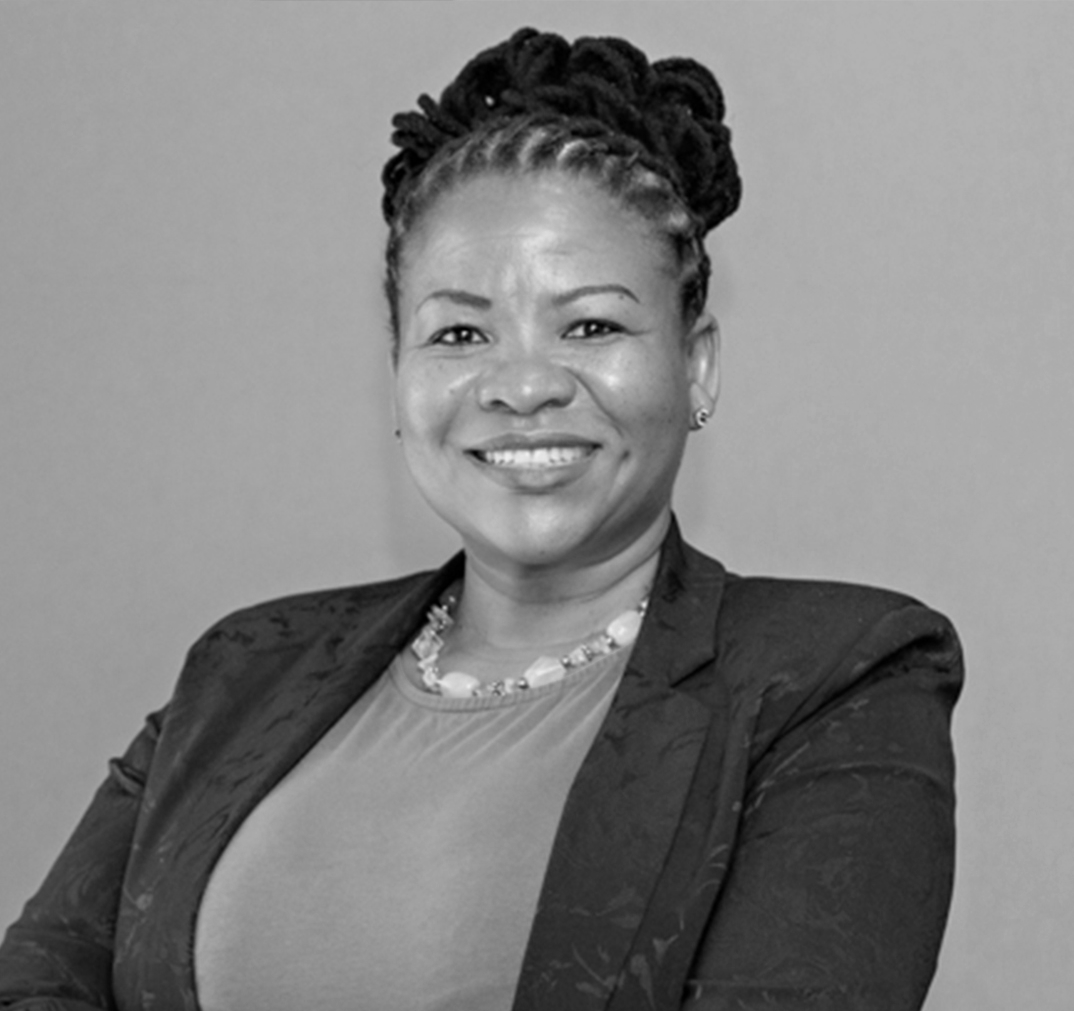3: Otsile Matheba
CFO: A2X Markets For the first time in nearly a century the JSE faces a formidable competitor, A2X aims to capture 20% of the market within the next five years.

CIARAN RYAN: This is CFO Talks and today we are talking to Otsile Matheba, chief financial officer for A2X Markets, which is a very interesting organisation and quite a new one, which is a competitor stock exchange to the JSE. Otsile went to high school at Potchefstroom High School for boys before studying for a Bachelor of Accounting Science degree at Wits University. He then completed his Honours in Bachelor of Accounting Science at University of South Africa, followed by a post-graduate diploma in business administration at the Gordon Institute of Business Science. He is currently enrolled in the chartered financial analyst programme and in 2014 he qualified as a chartered accountant. He previously worked as a trainee CA at Coca-Cola, then as a financial analyst at ABI, which is the soft drinks division of brewer, SABMiller. In 2015 he joined Peregrine Securities as a financial manager; in 2017 he joined A2X Markets that is a brand new stock exchange, which is doing extremely well. Just by a way of background, A2X currently has 17 stocks listed on the exchange and last year generated about 1% of the JSE’s trade value. Some of the heavyweights of the JSE have chosen to have secondary listings on A2X, including Naspers, Standard Bank and Growthpoint. That’s quite an achievement. I’m really excited to get into this subject with Otsile, so welcome, Otsile.
OTSILE MATHEBA: Thank you very much.
CIARAN RYAN: How has your previous role as a financial analyst and financial manager prepared you for the role of chief financial officer?
OTSILE MATHEBA: I think the big thing that happened is that it prepared me in a sense of making me very, very focused…knowing what to focus on in terms of our financials, what are the key drivers for the business and being able to work under pressure, as well as the regulatory requirements for the role, how to deal with the various aspects of the financial function, how to run a financial function within a business. So I think those are the key basic tenets that helped.
CIARAN RYAN: I imagine it was quite a risk moving from financial analyst to CFO of a new stock exchange and I think A2X was the first time that the JSE in nearly a century has had any competition whatsoever. What appealed to you about this opportunity to start up this new stock exchange?
OTSILE MATHEBA: I think for me it wasn’t a very big risk, I looked at it in two ways, the first one was what do I want from my life and then I went down to the gritty details in terms of the actual role and the company and everyone. So in terms of what I wanted from my life, I want to lead a life that matters, I want to lead a life where I take on certain big challenges and obstacles, just from a personal perspective, so I think that was very, very important for me. So in that sense A2X really does play a big role in that we really are trying to change the landscape of the financial markets in South Africa. So it’s a big enough goal for me, I always wanted to set myself big, hairy, audacious goals. Then on a second level, I actually did my due diligence in terms of who are the people involved within A2X. I looked at the backing that the company has, it was Sean Melnick who started Peregrine Holdings, it was Ashley Mendelowitz, who was at Peresys and now that’s merged into IRESS, we’ve got African Rainbow Capital, which is led by Patrice Motsepe, and with Johan van Zyl and Johan van der Merwe, famous from the Sanlam days, who are heading that up. So I felt that from those two perspectives there was really, really a strong case for me to join and it was a big, hairy, audacious goal and you’ve got the right personnel backing A2X to succeed, and I felt that it was almost a no-brainer when you look at it from that perspective.
CIARAN RYAN: You threw out a few names there, Johan van Zyl and Johan van der Merwe, and various other people, so give us an idea of who is backing A2X Markets?
OTSILE MATHEBA: The major backers are, as I have said, Sean Melnick, he was the chairman and co-founder of Peregrine. It’s Ashley Mendelowitz, he started a company called Peresys, which was later merged into IRESS, which is the leading market data provider in South Africa. Then obviously you’ve got ARC Capital Investments led by Johan van Zyl and Johan van der Merwe. So those make up the majority. How does A2X differ from the JSE?
CIARAN RYAN: As we’ve mentioned, the JSE has had a monopoly on trading stocks for the better part of a century, so I think it would be quite useful to explain to listeners the business case behind A2X, what gaps does it fill that the JSE does not?
OTSILE MATHEBA: When A2X was started we looked at the international model in terms of what has worked and what has not worked in terms of competitor stock exchanges the world over. One of the key things that we saw was that for a successful new entrant into stock exchanges is that you have to go for a secondary listing model that’s proven the world over, whether you’re talking about the US or Europe or the UK that that is the way to do it…
CIARAN RYAN: Just pause there a second and explain what is a secondary listing?
OTSILE MATHEBA: A secondary listing is actually very, very simple, it’s when a company basically gives investors the choice in terms of where different investors can purchase shares in their company. The reason why there’s multiple exchanges, for instance in the US they have got over 13 stock exchanges, I think people only know the New York stock Exchange. Europe is the same thing. So you are basically choosing a venue in terms of where you want to transact. To give you an idea, seven of the top ten companies on the JSE are actually inward listings, so those are actually secondary listings.
CIARAN RYAN: Inward listings being companies that are actually listed abroad but they also have a listing in Johannesburg.
OTSILE MATHEBA: Yes, exactly.
CIARAN RYAN: So a secondary listing, for people who maybe don’t know the financial markets, a stock exchange fulfils two roles, one is it’s a vehicle for raising money for companies. A secondary listing really refers to the subsequent trading of those shares on the exchange. So in the case of A2X you have companies like Naspers, the primary listing would be the Johannesburg Stock Exchange and the secondary listing would be A2X.
OTSILE MATHEBA: 100%
CIARAN RYAN: You’ve managed to attract some big names like Naspers, Standard Bank and Growthpoint, maybe you can list a few others, how has that been done, what is the compelling business case for companies to do that, to come onto your market?
OTSILE MATHEBA: I think one of the big things is that the companies that do this actually have their investors in mind in that you give your investors choice in terms of where they can transact. In our case it’s 40% cheaper to trade on our exchange, as compared to the JSE.
CIARAN RYAN: Wow.
OTSILE MATHEBA: There are very significant savings for the investor. We estimate to be around R1 billion per year in savings for the entire industry that we bring to the market just by being in the market. One of the things actually if you look on a global perspective and when we’ve spoken to overseas investors is that they have told us, well, we like South Africa but it’s a very high-cost destination. By having us coming in at 40% cheaper than the JSE, all of a sudden we’ve seen increased interest in coming to our market because of how cheap we are in comparison to the JSE.
CIARAN RYAN: The interest being from abroad?
OTSILE MATHEBA: The interest being from abroad. So that’s a whole class of investors who are currently not here, so we actually are growing the market as A2X in that sense. You’ve got, for instance, high-frequency traders and market makers that are all of a sudden saying, well, if you are going to be 40% cheaper all of a sudden we become very competitive in relation to all the other stock exchanges where they could be posting liquidity around the world.
High-frequency traders
CIARAN RYAN: Just on a slight deviation there, I saw this documentary about these high-frequency traders or I think they call them algorithmic traders, they moved their computer systems as close as they could to the New York Stock Exchange because the length of cable shaved off microseconds and gave them some kind of advantage. Is this happening here?
OTSILE MATHEBA: Well, at the moment, as I said, because we are still in our infancy that market is still quite small but we are seeing increased levels…it’s happening here in South Africa, they co-locate through one of the data centres in Teraco with us. So it’s definitely going to be happening in South Africa and again, as I said, it’s a new breed of investors who are coming in to the market, which increases liquidity for the overall market. So I see it as a positive development for the country.
CIARAN RYAN: You mentioned Teraco, what is that?
OTSILE MATHEBA: Teraco are a data centre provider, they’ve got different data centres. So all our internet traffic in South Africa actually goes through Teraco, it’s a very, very successful business. So instead of building a data centre, for instance, like the JSE has in the basement of their building in Sandton, what technology has allowed now is that you’ve got this centrally hosted data centre, which their main focus really is to provide – and it’s a very simple business – to provide backup, to provide power and all of that. So they’ve placed it right at the airport where obviously there are going to be no power interruptions. So that helps us save. When you ask why are we 40% cheaper it’s because we don’t have to maintain our own data centre. We share that data centre with a whole lot of companies in South Africa, whether you are talking about some of the banks and the like. So you actually don’t need a data centre anymore that you run by yourself, you can actually co-locate within that data centre.
CIARAN RYAN: Would you say that there’s a global revolution in the way that people own and acquire stocks and why is that? What role is technology playing in this revolution? You mentioned some of the savings that you’ve been able to pass onto investors by farming out your data management or your data storage to Teraco, so maybe just spell that out in a little bit more detail, how is the world of stock trading changing?
OTSILE MATHEBA: It’s changing in very, very significant ways. I think if you look at it from an investor perspective, there are two things mainly that you are focused on and that is the costs, what it costs to transact and the second thing is what is going to be your return on investment that you make. Increasingly where you see, for instance, where A2X and other players are coming in and saying, well, you can’t really control return that much but one of the things that you can control are the costs at which you transact at and we are seeing a lot of innovation happening there. You’ve seen the proliferation of index funds, for instance, in the US they make a very, very large portion and increasingly we are also seeing that in South Africa, where the different index funds, whether you are talking about CoreShares, whether you are talking about Ashburton or Sygnia, who are very big players, or Satrix, who are big players in South Africa, and you’re seeing that increasingly investors are looking at these index strategies because they’re cheaper and because they’re easier to understand. That gives us an opportunity. For instance, if you look at an ETF, one of the big things about an ETF is that it’s actually very, very rule-based…
CIARAN RYAN: Sorry, for people who don’t know what an ETF is?
OTSILE MATHEBA: It’s an exchange traded fund, so it’s basically what you’d call an index fund. So, for instance, it will track the Top 40 companies in the JSE.
CIARAN RYAN: So you are buying a basket of shares.
OTSILE MATHEBA: One of the most important things when you are buying a basket of shares is what’s called your total expense ratio within that. Once you can drive down costs, all of a sudden the returns that you were invested in are going to be much, much higher.
A2X’s target market
CIARAN RYAN: Is one of the objectives of A2X to attract people who are not ordinarily buying stocks? In other words, people who are entering the job market for the first time, who are starting to save for the first time, would that be one of your target markets?
OTSILE MATHEBA: No, not at all. A2X is primarily focused on the wholesale market, so that’s your institutional investors, which is the pension funds and so on. That’s who we focus on, they make up the majority of the market anyway. So we are not in the retail space at all. We’ve got other companies, for instance, you’ve got ZAR X and EasyEquities, they play in that space in terms of the retail market. We are a purely wholesale market, where we deal directly with the brokers and the institutional investors in that sense.
CIARAN RYAN: Right, we’ll get to the CFO role in a minute but I think this is quite interesting because the thing about a stock exchange is that it intersects with the economy in a very, very broad way because there you see how capital flows and you see how market sentiment influences the valuation of companies and so on. I’m quite interested to find out where do you see A2X within, let’s say, five years? How large is it going to be and how significant is it going to be as a market in South Africa?
OTSILE MATHEBA: We’ve set ourselves a goal of being at least 20% of the market within the next five years. We are well on our way in terms of achieving that, we’ve got a lot of support from the broker community. We’ve got a lot of support from issuers and issuers being the likes of Naspers, which is the biggest company in South Africa. We’ve seen Standard Bank come through, we’ve seen Sanlam, Santam. So we’ve got a lot of support for what we are doing. The brokers are investing in their systems. You can imagine that for a very long time all the brokers in South Africa have been looking at just one market, which has been the JSE, all of a sudden they do have to put up a bit of investment to make sure that they are able to transact on both markets, being the JSE and A2X.
CIARAN RYAN: Is that a significant investment that they have to make?
OTSILE MATHEBA: Well, as I have mentioned, we see the industry saving up to R1 billion per year…
CIARAN RYAN: Just pause on that one, R1 billion per year, is that if all the trade currently on the JSE goes through your market, is that how you calculate that?
OTSILE MATHEBA: No, we based it on our expected market share by the time all the brokers have operationalised then you’ll see those sort of savings. It’s significant. You’ll see in Europe, for instance, where they’ve got a concept called best execution, which is mandated by law that you have to trade where the price is cheapest. We’re seeing in the companies listed on our exchange at the moment that we’re cheaper and the reason why we are able to be cheaper, as I have mentioned, we’re 40% cheaper because we don’t have the legacy issues that the JSE does, I think that’s one of the key differentiators between us and the JSE and where the brokers now all of a sudden can get significant value.
CIARAN RYAN: So you see A2X having about 20% of the market within five years, I think you are currently doing about 1%?
OTSILE MATHEBA: We are doing 1%.
CIARAN RYAN: So you’ve got a mountain to climb there.
OTSILE MATHEBA: We’ve got a mountain to climb and there are a couple of reasons, as I have explained, one of the primary ones is the fact that all the market infrastructure at the moment is geared towards just the JSE, all the different brokers do have to make a small investment so that they can trade both and we are seeing that investment coming through. Obviously you always want it to happen quicker but at the moment it’s not happening as quickly as we would like but we’re seeing progress in that regard. The second thing is that we actually have to approach issuers, for instance like Naspers or Standard Bank, to say please list on our exchange. If you look internationally what actually happens is that they’ve got something that’s called an admitted trade model, where once you are granted an exchange license you automatically, all the universe of stocks out there are automatically listed on your exchange. So for us there’s a lot of groundwork that we have to do, go out to every single company and explain the benefits of a secondary listing to them. So there’s an education process in that sense. The regulator actually has mentioned to us that they are going to be changing some of the regulation in that sense. So we’re quite positive that as time goes on we would have gained enough credibility with everyone and we’ll be able to achieve those things.
CIARAN RYAN: I think what you’re saying there is you currently have to ask permission, if you want to list Naspers you have got to go and ask the company’s permission.
OTSILE MATHEBA: Yes.
CIARAN RYAN: Whereas the regulations, when they change, you’ll be able to do that and the company has got no say. You’re basically selling what belongs to somebody else, it doesn’t belong to the company, so why should you ask their permission?
OTSILE MATHEBA: Exactly. As I have said, internationally that’s one of the things that happened and we saw, for instance, at the start of some of the exchanges, especially in Europe, within a very, very short period of time they were able to get significant market share because of that.
CIARAN RYAN: We’ve also got in the studio, Nicolaas van Wyk, he’s the chief executive officer of the South African Institute of Business Accountants. Nick, you had a question for Otsile.
The CFO’s role in marketing
NICOLAAS VAN WYK: You’ve raised an interesting issue and that is the CFO’s role in marketing. You’ve mentioned now your market penetration is dependent on regulatory changes but I’m sure as a team you also have different approaches to get companies onboard. Could you just explain a little bit how you engage as a CFO with your marketing team?
OTSILE MATHEBA: We obviously strategise in terms of the different companies that we want to be dealing with. I think one of the big learnings that we have seen is that you don’t cold call companies, that just scares them off. But a lot of our marketing, funnily enough, is actually educating the South African community about the benefits of a secondary listing. So when you go out and you speak to a mining company it’s very different to if you’re speaking to a financial services company, for instance, in terms of the educational aspect. So we’ve got broker forums, we’ve got issuer forums. We also rely a lot on personal contacts in terms of getting the meetings with the different board members and making sure that we actually are on a board agenda and that the board is able to eventually proceed with the listing.
CIARAN RYAN: I think one of the other things in order to attract people to the market is you have to be able to offer them clearing and settlement, which is very efficient and very certain. It’s almost like a block chain thing and I see as more and more transactions move towards electronic settlement you get this block chain phenomenon, in other words, I am trading with a person halfway around the world that I don’t know, how sure am I if I am buying stocks that this person has the stocks that I am prepared to pay for. I think this is kind of where technology is driving this whole market thing, is providing that surety, I’m transacting in safety.
OTSILE MATHEBA: It’s a very good question that we get asked a lot, all of our trades are actually settled through Strate, the same place where the JSE settles its trades is the same place that we settle our trades. We’re talking about the same shares and we’re talking about the same share register, so there’s really no extra burden on companies to facilitate any extra work for their shareholders when they settle their trades. So that’s been working now for 18 months without any issue and we’ve got significant volumes, relatively small in terms of the JSE, but from where we started that have gone through that platform without any issue.
CIARAN RYAN: I think the JSE aims to settle in what they call T+3, which is three days after the trade. So how fast do you do it?
OTSILE MATHEBA: We didn’t want to add complexity to the market, so we’ve kept everything exactly the same as what the JSE does. So we’re still working on the T+3 model there as well.
CIARAN RYAN: Would it be correct to say that your role as CFO goes beyond number crunching? You joined at the very start of this new market, so you must have been involved in the planning, the strategy and the execution of the business plan, is this how you see the role of the modern CFO?
OTSILE MATHEBA: Absolutely, one of the things that I knew coming into this role was that you have to get your hands dirty. I’ve had to learn regulation much deeper than I have ever done, with marketing going out to different companies and even conducting interviews like this one to get the message out there that A2X is open for business and it can be trusted.
CIARAN RYAN: How does the name A2X come about?
OTSILE MATHEBA: Good question, I’m actually not 100% sure…
NICOLAAS VAN WYK: It [means] alternative second listing.
A2X focuses on the secondary market
CIARAN RYAN: That makes sense, right. Alternative second listing, okay. I noticed that A2X is not a market for capital raising, so it focuses solely on the trading of stocks already listed. Another South African startup exchange is ZAR X, which aims to provide a platform for smaller companies to raise capital. The JSE is the one market where you can go and raise capital and then you can trade the shares afterwards. So you’re focusing just on that secondary market.
OTSILE MATHEBA: Yes, we focus on the secondary market. We looked internationally and, again, as we said, for you to be a successful exchange you have to compete in the secondary market. The other companies like ZAR X they do capital raisings but they play in what we call the restricted share market. So that’s going to be your BEE companies or other companies which don’t necessarily meet the criteria to be listed on the JSE. Again, we compete primarily in the secondary market.
CIARAN RYAN: We’re going to wrap up now but before we do that give us some of the big influences in your life and your career, are there any authors who you recommend, any person who has changed the direction of your life?
OTSILE MATHEBA: I read a lot of Warren Buffett growing up, I think I’ve read almost…
CIARAN RYAN: At what age did you start reading Warren Buffett?
OTSILE MATHEBA: I think I was around about 15 or so.
CIARAN RYAN: Really?
OTSILE MATHEBA: Yes, around 15 but I really enjoy reading business biographies, so my favourite, I really enjoyed Sam Walton’s Made in America about the building of Walmart. My favourite book is by a fellow accountant, Phil Knight, who started Nike, I really, really enjoyed that. So I enjoy business biographies, those have been my major influences I would say.
CIARAN RYAN: Yes, Phil Knight’s book when he didn’t know from one day to the next whether he’s going to be in business tomorrow, it’s quite a fascinating read.
OTSILE MATHEBA: Very, very fascinating.
CIARAN RYAN: In terms of business mentors, have you had any?
OTSILE MATHEBA: I have, I have been very, very lucky, I’ve got Rob Gerhard, who started a very successful company called Umbono, which is now focused on the oil and gas industry. I’ve had Andrew le Roux, who is the former CEO of iWyze, Old Mutual, he’s had a very big influence on me. So I would say those are the two primary…
CIARAN RYAN: How did they influence you?
OTSILE MATHEBA: I think in terms of just giving me direction, in terms of giving me the confidence to go out there and really, really go for my dreams, just being that sounding board for me whenever I have needed help or whenever I am making a decision, should I transition, should I stay in my current role, those sorts of decisions. Also opening up their networks to me and recommending lunch or dinner with so-and-so.
CIARAN RYAN: So you’ve got some guardian angels looking after you there.
OTSILE MATHEBA: I appreciate them, they have been awesome.
CIARAN RYAN: What do you do for leisure?
OTSILE MATHEBA: For leisure I am a runner, so I really, really enjoy running. I don’t go over a marathon. I also own a motorbike. CIARAN RYAN: What kind of bike?
OTSILE MATHEBA: It’s a BMW G 310 R.
CIARAN RYAN: That’s a nice road bike.
OTSILE MATHEBA: Yes, it’s a very, very nice road bike. I really, really enjoy that, it’s not something that I thought I would ever enjoy but the bug hit me and it’s one of the things that I really do enjoy. Then, again, reading, I’m a voracious reader, whatever I can get my hands on but, as I have said, it’s mainly business biographies that I really enjoy.
NICOLAAS VAN WYK: SAIBA is organising the next CFO Talks event and we are thinking of calling the theme of that event the anti-corrupt CFO. We are thinking that of late we have seen a lot of scandals, central to all these scandals is sometimes the CFO, why would CFOs be so involved in these things. Are there things lacking in the training, in their perspectives, maybe you can just shed more light on that.
OTSILE MATHEBA: I think the role of a CFO [involves different aspects], number one is you should not just view yourself as a bean counter who just presents information at the end, you actually have to influence culture, you are trained that way. What you find is that you need a strong character as a CFO. One of the things about a CFO and when I explain it is you’re a truth teller in the business, you have to tell the truth. Everyone else can come with projections but you have to be the one that when everything is said and done is that you tell the truth. I think that’s paramount to the role of a CFO and I think once you get into an environment where for whatever reason you feel bullied or you don’t see yourself as an influencer of culture and you think that’s just the role of the CEO or other business operations, then that’s when some of the creep comes in in terms of corruption and so on.
CIARAN RYAN: Thank you very much, Otsile, for joining us.
OTSILE MATHEBA: Thank you so much.

